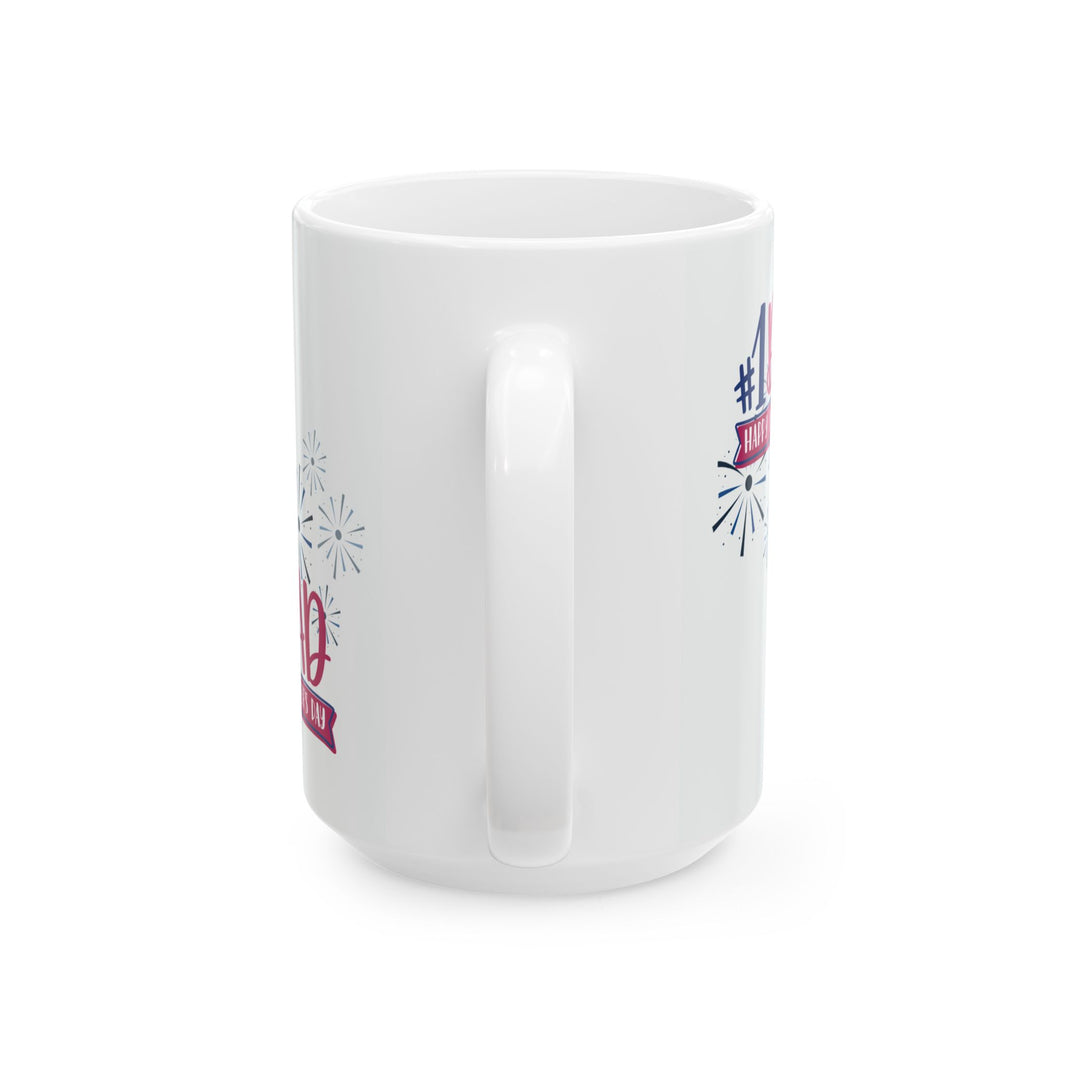Your One-Stop Shop for Everyday Essentials & Unique Finds
Your Ultimate Guide to Health Tips for Every Season
Keeping up with your health can feel like a lot, especially when the seasons change. But it doesn't have to be complicated. This guide breaks down simple health tips for every season, helping you feel your best all year round. Think of it as your go-to for staying on track, no matter what the weather's doing.
Key Takeaways
- Set clear, achievable health goals for yourself, especially when starting a new season.
- Understand your current health status by getting regular checkups and knowing your baseline.
- Prioritize good sleep habits; it makes a big difference in how you feel.
- Stay hydrated and eat well, adjusting your diet as the weather changes.
- Protect yourself from the sun in summer and consider immune-boosting foods in colder months.
Embrace Spring with Renewed Vitality
After a long winter, spring feels like a breath of fresh air, doesn't it? It's the perfect time to shake off the hibernation mode and really focus on feeling good. Think of it as a reset button for your health. Let's get you set up to feel your best this season.
Starting something new is always easier when you know what you're aiming for. Instead of just saying 'I want to be healthier,' let's get specific. Using the SMART goal method can really help. SMART stands for Specific, Measurable, Achievable, Relevant, and Time-bound. It sounds a bit formal, but it works. For example, instead of 'eat better,' try 'I will eat at least one serving of vegetables with lunch and dinner four days this week.' See? Much clearer.
Here’s a quick way to turn general ideas into actionable goals:
-
General: Get more exercise.
SMART: I will walk for 30 minutes three times a week for the next month to improve my energy levels. -
General: Drink more water.
SMART: I will carry a water bottle and refill it at least twice a day, every day, for the next two weeks. -
General: Feel less stressed.
SMART: I will practice deep breathing for 5 minutes each morning before starting my day, for the next 10 days.
Setting clear, achievable goals is like drawing a map for your health journey. It gives you direction and makes it easier to see how far you've come.
Before you start setting those new goals, it's a good idea to know where you're starting from. Think of it like checking your starting point before a race. Knowing your baseline helps you see progress more clearly and adjust your plan if needed. A good way to do this is by getting a general check-up. Your doctor can check things like your blood pressure, heart rate, and weight. They can also give you a rundown of how things are going overall. It’s not about judgment, it’s about information so you can make informed choices.
Here are a few things to consider checking:
- Vital Signs: Blood pressure, heart rate, temperature, and breathing rate.
- Measurements: Height and weight to calculate your Body Mass Index (BMI).
- General Feeling: How energetic do you feel? How's your mood? Are you sleeping well?
As the days get longer, our sleep patterns can sometimes get a little mixed up. But good sleep is super important for everything – how you feel, how you think, and how your body recovers. Making sure you get quality rest can make a big difference in how you tackle spring.
Try these tips to get your sleep back on track:
- Stick to a Schedule: Go to bed and wake up around the same time every day, even on weekends. This helps regulate your body's internal clock.
- Create a Relaxing Routine: Wind down before bed. Maybe read a book, take a warm bath, or listen to calm music. Try to avoid screens for at least an hour before you plan to sleep.
- Make Your Bedroom a Sleep Haven: Keep it dark, quiet, and cool. If you can't control the light, consider blackout curtains or a sleep mask. Make sure your mattress and pillows are comfortable too.
Getting enough good sleep isn't a luxury; it's a necessity for feeling good and functioning well. It's one of the simplest yet most effective ways to boost your overall health.
Thrive Through Sunny Summer Days

Summer is here, and it's time to soak up the sun! But while we're enjoying the longer days and warmer weather, it's important to keep our health in check. This season is all about staying refreshed, protected, and active in a smart way. Let's make this summer a healthy and happy one!
Hydration and Nourishment Essentials
Staying hydrated is super important when it's hot out. You might not even feel thirsty, but your body still needs fluids. Aim to drink plenty of water throughout the day. Think of it like this: your body is a plant, and water is what keeps it growing strong! Eating foods with a lot of water in them, like watermelon, cucumbers, and berries, is also a great idea. They're tasty and help you stay hydrated.
Here’s a quick guide to staying hydrated:
- Water is your best friend: Try to drink at least eight 8-ounce glasses of water daily. Keep a water bottle with you wherever you go.
- Eat your water: Include fruits and veggies like watermelon, strawberries, and celery in your meals.
- Limit sugary drinks: Sodas and sugary juices can actually dehydrate you faster.
- Listen to your body: If you feel thirsty, drink up! Don't wait.
Mastering Sun Protection
We all love the sun, but its rays can be pretty strong. Protecting your skin is key to enjoying summer safely. Sunscreen is your summer superhero! Make sure you're using a broad-spectrum sunscreen with an SPF of 30 or higher. Slather it on generously before you head outside, and don't forget to reapply every couple of hours, especially if you're sweating or swimming.
Don't forget these other sun-smart tips:
- Wear a hat: A wide-brimmed hat can protect your face, neck, and ears.
- Sunglasses are a must: Look for ones that block 100% of UVA and UVB rays to protect your eyes.
- Cover up: Light-colored, loose-fitting clothing made from natural fabrics can help keep you cool and protected.
- Seek shade: Plan outdoor activities for cooler parts of the day, like early morning or late evening.
Staying Active Safely
Summer is a fantastic time to get moving! Whether it's a walk in the park, a swim, or a gentle yoga session, staying active is great for your body and mind. Just remember to be smart about it.
- Choose low-impact activities: Think walking, swimming, cycling, or gardening. These are easier on your joints.
- Timing is everything: Schedule your workouts for the cooler parts of the day to avoid overheating.
- Pace yourself: Don't push too hard, especially when it's really hot. Take breaks when you need them.
- Stay hydrated during exercise: Drink water before, during, and after your activity.
Remember that certain medications can make you more sensitive to heat. Always check with your doctor or pharmacist if you have any concerns about how the summer weather might affect your medications. Being aware is the first step to staying safe and healthy.
Fall Into Healthy Habits
As the leaves start to turn and the air gets a bit crisper, it's the perfect time to reset and get back into some healthy routines. Think of it as a cozy refresh for your body and mind. This season is all about grounding yourself and building habits that feel good and last. Let's make this fall a time for positive changes that stick.
The Importance of Regular Checkups
Before we jump into new habits, it's a really good idea to check in with your doctor. Getting a physical exam is like getting a report card for your health. It helps you understand where you're starting from, so you know what areas might need a little extra attention. They'll check things like your blood pressure, heart rate, and weight. It’s a simple step, but it gives you a clear picture and helps you set realistic goals for the season ahead. Don't skip this – it's the foundation for everything else.
Getting Your Vaccinations
Fall is prime time for getting your flu shot and any other recommended vaccinations. It’s a proactive way to protect yourself and those around you from seasonal bugs. Think of it as giving your immune system a helpful boost before the colder months really set in. It’s a small step that makes a big difference in staying well and enjoying all the autumn has to offer.
Nourishing Your Body for Cooler Weather
As the temperature drops, our bodies might crave different kinds of foods. This is a great opportunity to focus on warm, comforting, and nutrient-dense meals. Think hearty soups, roasted vegetables, and whole grains. It’s not about restriction, but about choosing foods that fuel you and keep you feeling good. Trying out new recipes with seasonal produce can be a fun way to explore healthy eating. Making mindful food choices can really help you feel your best as the seasons change.
Here are a few ideas to get you started:
- Warm Soups and Stews: Packed with veggies and lean protein, these are perfect for a chilly evening.
- Roasted Root Vegetables: Carrots, sweet potatoes, and squash are full of vitamins and fiber.
- Whole Grains: Oats, quinoa, and brown rice provide sustained energy.
- Comforting Spices: Cinnamon, ginger, and nutmeg not only add flavor but also have health benefits.
Remember, consistency is key. Don't aim for perfection, aim for progress. Small, sustainable changes are much more effective in the long run than trying to overhaul everything at once. Be kind to yourself and celebrate the small wins along the way.
Winter Wellness and Immunity Boost
When the temperatures drop, it's time to focus on keeping ourselves healthy and strong. Winter can be a tough season for our bodies, with shorter days and more time spent indoors, which can sometimes mean more germs circulating. But don't worry, there are plenty of simple things we can do to give our immune systems a helping hand and stay feeling good.
Strengthening Your Immune System
Think of your immune system as your body's personal security team. To keep it in top shape during the colder months, a few key habits really make a difference. Eating a balanced diet is super important. Load up on colorful fruits and vegetables – they're packed with vitamins and minerals that help your body fight off anything trying to bring you down. Things like citrus fruits, leafy greens, and berries are great choices. Also, don't forget about getting enough sleep. When you're well-rested, your body can do its best work, including keeping your immune defenses strong. And of course, washing your hands regularly is a simple but incredibly effective way to stop germs in their tracks.
Maximizing Vitamin D Intake
It's a well-known fact that we get less sunlight in the winter, and that can affect our Vitamin D levels. Vitamin D is pretty amazing; it helps with bone health, keeps our immune system running smoothly, and can even help with our mood. Since getting enough sun might be tricky, we can turn to other sources. Foods like fatty fish (salmon, mackerel), fortified milk, and eggs naturally contain Vitamin D. If you're not getting enough from your diet, a supplement could be a good option, but it's always best to chat with your doctor first to see what's right for you.
Preventing Seasonal Illnesses
Nobody enjoys being sick, especially during the holidays or when you've got a busy schedule. A good strategy is to be proactive. Getting your flu shot is a smart move to protect yourself and those around you from the flu. Beyond that, maintaining good hygiene, like frequent handwashing, is key. Staying hydrated by drinking plenty of water helps keep your body's systems working well. And if you're feeling a bit run down, don't push yourself too hard. Listening to your body and getting extra rest can make a big difference in preventing a minor sniffle from turning into something worse.
Year-Round Health Tips for Every Season
Staying healthy isn't a seasonal hobby; it's a lifestyle choice that benefits you all year long. Think of it like maintaining your car – you wouldn't just get it serviced before winter, right? Your body deserves that same consistent attention. Let's look at some simple, actionable tips that can make a big difference, no matter what the calendar says.
Consistent Exercise for Heart Health
Moving your body regularly is one of the best things you can do for your heart. It doesn't have to be intense gym sessions every day. Finding activities you genuinely enjoy is key to sticking with it. Maybe it's a brisk walk in the park, a bike ride on a sunny afternoon, or even dancing around your living room to your favorite music. The goal is to get your heart pumping.
Here’s a simple way to think about incorporating movement:
- Aim for at least 150 minutes of moderate-intensity aerobic activity per week. This could be 30 minutes, five days a week.
- Include muscle-strengthening activities at least two days a week. Think bodyweight exercises, lifting weights, or resistance bands.
- Find ways to be active throughout the day. Take the stairs instead of the elevator, go for a walk during your lunch break, or do some stretches while watching TV.
Regular physical activity helps manage weight, lower blood pressure, and improve cholesterol levels. It's a powerful tool for long-term well-being.
Prioritizing Sleep Hygiene
Sleep is when your body repairs and recharges. Skimping on sleep can affect your mood, energy levels, and even your immune system. Good sleep hygiene is all about creating habits that help you get quality rest.
Try these tips to improve your sleep:
- Stick to a regular sleep schedule. Go to bed and wake up around the same time every day, even on weekends.
- Create a relaxing bedtime routine. This could include reading a book, taking a warm bath, or listening to calming music.
- Make your bedroom a sleep sanctuary. Keep it dark, quiet, and cool. Limit screen time an hour before bed, as the blue light can interfere with melatonin production.
Getting enough quality sleep is just as important as eating well and exercising. It's the foundation for feeling your best.
Managing Seasonal Allergies
Allergies can pop up at any time of year, not just in the spring. Whether it's pollen in the air, dust in your home, or pet dander, managing allergy symptoms can significantly improve your quality of life. Paying attention to potential triggers is the first step.
Here are some ways to tackle allergies year-round:
- Keep windows closed during high pollen counts. Use air purifiers with HEPA filters indoors to clean the air.
- Wash bedding regularly in hot water to get rid of dust mites.
- Rinse your nasal passages with a saline solution to clear out allergens.
- Talk to your doctor about over-the-counter or prescription medications that might help manage your specific symptoms.
Wrapping It All Up
So there you have it! Staying on top of your health throughout the year doesn't have to be complicated. By making small, consistent changes and paying attention to what your body needs each season, you can feel your best. Whether it's getting that flu shot in the fall, enjoying more fresh air in the spring, staying hydrated in the summer, or boosting your immunity in the winter, every little bit helps. Keep these tips in mind, and you'll be well on your way to a healthier, happier you, no matter what the calendar says. Here's to feeling great, all year long!
Frequently Asked Questions
How can I set health goals that actually work?
To set goals that stick, make them SMART: Specific, Measurable, Achievable, Realistic, and Timely. For example, instead of saying 'I'll eat healthier,' try 'I'll eat a fruit or vegetable with every meal, four days a week.' This makes your goal clearer and easier to track.
Why is it important to know my starting health point?
Knowing your starting health, or baseline, helps you see how far you've come. It's like checking your starting position before a race. Getting a physical exam can give you important numbers like blood pressure and heart rate, which are good benchmarks.
What are some simple ways to improve sleep?
To sleep better, try to go to bed and wake up around the same time every day, even on weekends. Also, try to relax before bed, maybe by reading a book, and avoid screens like phones or TVs for an hour before you plan to sleep. Make your bedroom dark and quiet.
How can I stay healthy and active during the summer?
In the summer, drink lots of water to stay hydrated and eat meals with plenty of fruits and vegetables. Always use sunscreen, wear a hat, and sunglasses when you're outside. Try to exercise during cooler parts of the day, like the morning or evening, and listen to your body.
What should I do to prepare for the colder months?
As the weather gets cooler, focus on boosting your immune system. Eating foods rich in vitamins like C and D, washing your hands often, and getting enough rest are key. It's also a good time to get any recommended vaccinations, like the flu shot.
Are there specific health tips for year-round wellness?
Yes, consistency is important! Aim for regular exercise that benefits your heart, like brisk walking or cycling, most days of the week. Prioritize good sleep every night, as it helps your body recover. Also, be mindful of things like seasonal allergies and have a plan to manage them so they don't disrupt your daily life.













Leave a comment